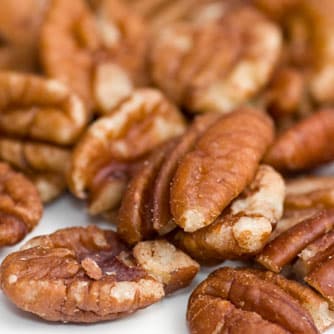Pecans contain different forms of the antioxidant vitamin E (known as tocopherols), plus numerous phenolic substances, many of them with antioxidant abilities. The nuts are especially rich in one form of vitamin E called gamma-tocopherols. Ella Haddad, from Loma Linda University (California, USA), and colleagues enrolled 16 men and women, ages 23 to 44 years, in a study in which the subjects ate a sequence of three diets composed of whole pecans, pecans blended with water, or a control meal of equivalent nutrient composition. The pecan meals contained about three ounces of the nut. Blood and urine samples were collected prior to meals and at intervals up to 24 hours after eating, then analyzed for key biomarkers. Following the test meals composed of whole pecans and blended pecans, researchers found that amounts of gamma-tocopherols (vitamin E) in the body doubled eight hours after both meals, and oxygen radical absorbance capabilities (ORAC—a scientific method for measuring antioxidant power in the blood) increased 12 and 10% respectively, two hours after the meals. In addition, following the whole-pecan meal, oxidized LDL cholesterol decreased by 30% (after 2 hours), 33% (after 3 hours), and 26% (after 8 hours). The team concludes that: “These results show that bioactive constituent of pecans are absorbable and contribute to postprandial antioxidant defenses.”
Pecans Promote Heart Health
Chatrapa Hudthagosol, Ella Hasso Haddad, Katie McCarthy, Piwen Wang, Keiji Oda, Joan Sabate. “Pecans Acutely Increase Plasma Postprandial Antioxidant Capacity and Catechins and Decrease LDL Oxidation in Humans.” J. Nutr., January 2011, 141: 1 56-62.
RELATED ARTICLES




